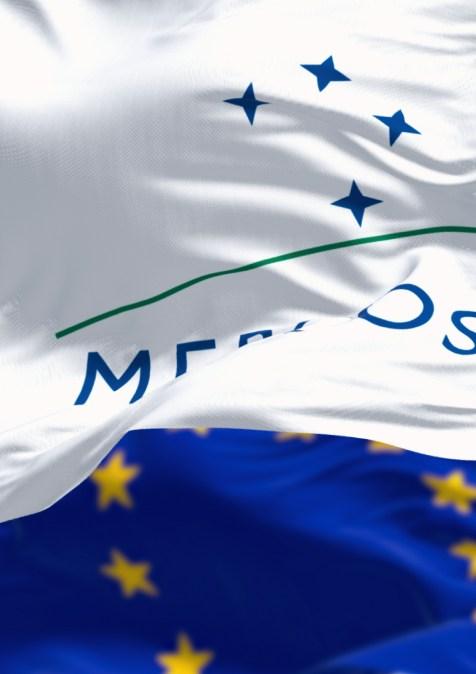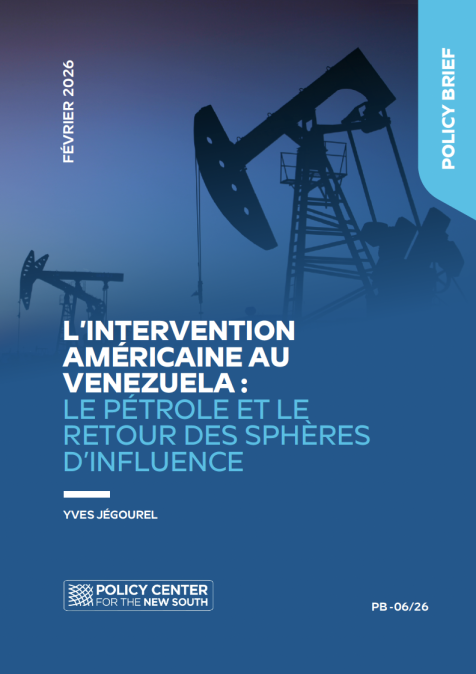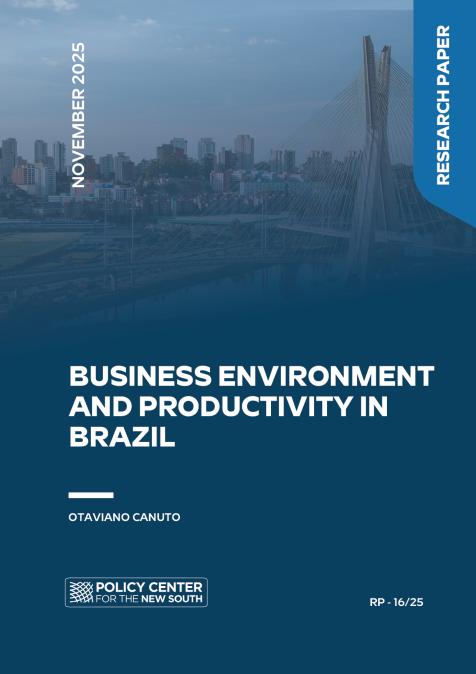When this interview was recorded, Argentina had just sworn in a new president of the Nation, raising many questions about the political future of the South American country. The freshly installed Head of State had led a peculiar campaign, had promised to slash government spending, in a country where half the population receives support from the State. His radical rhetoric against the political elite had galvanized the youth, but also contributed to stoke fear on the future of democracy in Argentina. In this interview, Camila Crescimbeni, former MP and member of the ADEL 2023 cohort, answered questions on her own political engagement and on her perception of what the close future of Argentina might look like.
RELATED CONTENT
-
February 19, 2026This Africafe's episode examines Brazil-Africa relations: historical ties shaped by the slave trade and diaspora, Lula’s trade expansion, and competition with China/EU. It explores South-South diplomacy’s potential to reshape global institutions, the role of “South Atlanticism,” and fut...
-
AuthorsFebruary 12, 2026Divergent regulatory regimes for data, driven by different motivations, ranging from privacy protection in the European Union to information control in China, could eventually produce distinctively different, and possibly contradictory, bodies of data. Artificial-intelligence models trained on those datasets could produce differing and possibly even conflicting outputs. To the extent that AI outputs start to shape human perception and to influence decisions, in governments and ...
-
AuthorsFebruary 9, 2026L’arrestation du président vénézuélien Nicolàs Maduro a suscité la sidération internationale en interrogeant sur le respect du droit international ; puis, fort logiquement, cette opération a conduit à maintes analyses tant sur les arguments politiques, sécuritaires et géostratégiques avancés par Washington que sur les ambitions sous-jacentes ayant présidé à cette décision sans réel précédent dans l’histoire récente. Outre la lutte contre le narcotrafic, c’est bien évidemment la ...
-
Helmut Sorge & Maria Fernanda BozmoskiJanuary 28, 2026This podcast examines the evolving U.S.–Latin America relationship amid shifting geopolitical dynamics and growing multipolarity. It highlights the region’s rising strategic importance al ...
-
 AuthorsGabriela Keseberg DávalosJanuary 26, 2026This Opinion was originally published by the Hanns Seidel Stiftung on January 19th, 2026. The author of this opinion, Gabriela Keseberg Dávalos, is a 2013 alumna of the Atlantic Dialogues Emerging Leaders Program. The signing of the EU–Mercosur agreement is a small geopolitical miracle. Signed on 17 January 2026 in Paraguay, it arrives at a moment when Europe is unmistakably being cast aside by the United States. Meanwhile Latin America, and with it, the Mer ...
AuthorsGabriela Keseberg DávalosJanuary 26, 2026This Opinion was originally published by the Hanns Seidel Stiftung on January 19th, 2026. The author of this opinion, Gabriela Keseberg Dávalos, is a 2013 alumna of the Atlantic Dialogues Emerging Leaders Program. The signing of the EU–Mercosur agreement is a small geopolitical miracle. Signed on 17 January 2026 in Paraguay, it arrives at a moment when Europe is unmistakably being cast aside by the United States. Meanwhile Latin America, and with it, the Mer ... -
AuthorsJanuary 23, 2026The post-1945 international order, an architecture born of war-weariness and colonial twilight, is now a majestic but empty shell. Its foundational promise—a universal system of rules administered impartially—has been hollowed out by decades of selective enforcement, instrumentalized law, and a chasm between the rhetorical ideals of its custodians and their geopolitical practice. This is not a temporary dysfunction, but a systemic failure of legitimacy. From the invasion of Iraq und ...
-
Nizar Messari & Alae JellalJanuary 16, 2026This episode examines the evolving U.S.–Venezuela relationship amid renewed U.S. assertiveness in the Western Hemisphere. It discusses Venezuela’s democratic crisis, the failure of the Ba ...
-
Ian O. Lesser & Ahmed OuhniniJanuary 09, 2026This episode explores the Trump administration’s confrontational stance toward Venezuela, including sanctions and military posturing and evaluates their effectiveness in undermining Madur ...
-
AuthorsNizar MessariDecember 19, 2025The U.S. military buildup in the Caribbean—the most significant since the Cuban Missile Crisis—comes at a moment when a new world order is taking shape, its contours still unclear, and in which the U.S. seeks to be more assertive in the Western Hemisphere. This disposition toward South America and the Caribbean was underscored by the recent publication of the new U.S. National Security Strategy, in which the Monroe Doctrine is explicitly invoked. This Policy Brief situates the devel ...
-
AuthorsNovember 21, 2025This report addresses the business environment in Brazil as one of the determinants responsible for the weak evolution of productivity in recent decades. After addressing this productivity performance, we define what constitutes the business environment, using as a reference the three ways in which the World Bank has been addressing the subject.Next, we highlight how the business environment affects productivity in a country. Finally, we review some recent reforms in the country's b ...








